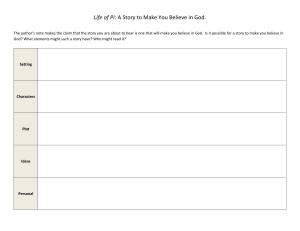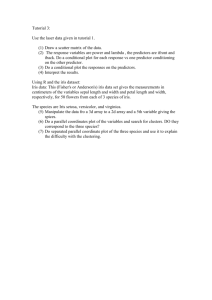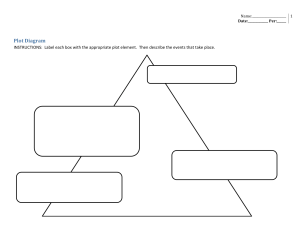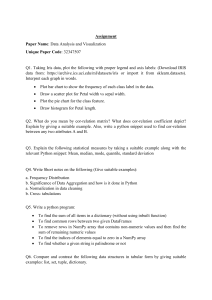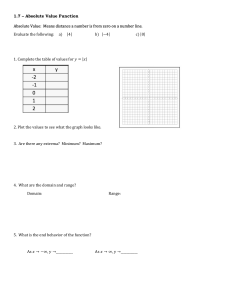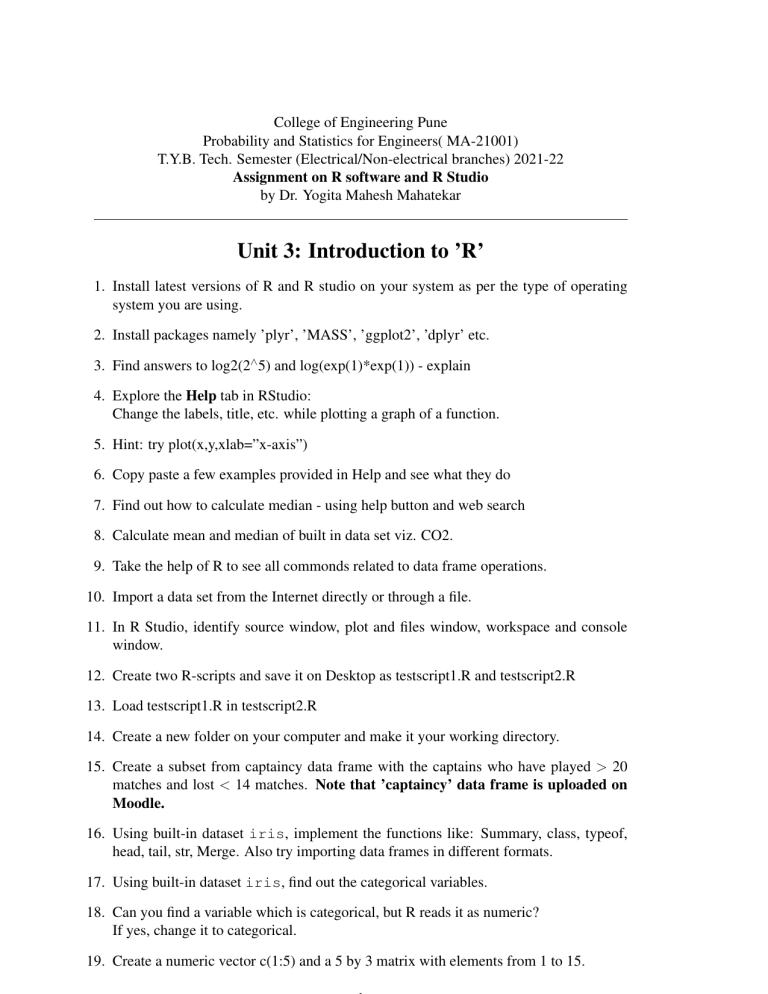
College of Engineering Pune
Probability and Statistics for Engineers( MA-21001)
T.Y.B. Tech. Semester (Electrical/Non-electrical branches) 2021-22
Assignment on R software and R Studio
by Dr. Yogita Mahesh Mahatekar
Unit 3: Introduction to ’R’
1. Install latest versions of R and R studio on your system as per the type of operating
system you are using.
2. Install packages namely ’plyr’, ’MASS’, ’ggplot2’, ’dplyr’ etc.
3. Find answers to log2(2∧ 5) and log(exp(1)*exp(1)) - explain
4. Explore the Help tab in RStudio:
Change the labels, title, etc. while plotting a graph of a function.
5. Hint: try plot(x,y,xlab=”x-axis”)
6. Copy paste a few examples provided in Help and see what they do
7. Find out how to calculate median - using help button and web search
8. Calculate mean and median of built in data set viz. CO2.
9. Take the help of R to see all commonds related to data frame operations.
10. Import a data set from the Internet directly or through a file.
11. In R Studio, identify source window, plot and files window, workspace and console
window.
12. Create two R-scripts and save it on Desktop as testscript1.R and testscript2.R
13. Load testscript1.R in testscript2.R
14. Create a new folder on your computer and make it your working directory.
15. Create a subset from captaincy data frame with the captains who have played > 20
matches and lost < 14 matches. Note that ’captaincy’ data frame is uploaded on
Moodle.
16. Using built-in dataset iris, implement the functions like: Summary, class, typeof,
head, tail, str, Merge. Also try importing data frames in different formats.
17. Using built-in dataset iris, find out the categorical variables.
18. Can you find a variable which is categorical, but R reads it as numeric?
If yes, change it to categorical.
19. Create a numeric vector c(1:5) and a 5 by 3 matrix with elements from 1 to 15.
20. Create a named list with vector, matrix and iris data set.
21. Retrieve iris data set from the list using dollar operator and indexing method.
22. State the difference between the results obtained by using dollar operator and indexing
method of accessing iris.
23. Read the file moviesData.csv
Create a histogram of the object named imdb_num_votes in this file.
24. Create a pie chart of the object mpaa_rating and save the plot.
25. Read the file moviesData.csv
Create a bar chart of critics_score for the first 10 movies.
26. Create a scatter plot of imdb_rating and imdb_num_votes to see their relation. Also
save the plot.
27. Consider the built-in data set mtcars. Find the numerical variables in this data set.
28. Make a scatter plot from the objects named mpg and wt in this data set.Save the plot
in .jpeg format.
29. Using built-in data set mtcars, draw a bar chart from the object cyl. Add suitable
labels to this bar chart.
30. Consider the built-in data set mtcars. Find the cars with hp greater than 100 and cyl
equal to 3.
31. Arrange the mtcars data set based on mpg variable.
32. Use the built-in data set airquality. Using ’select’ function, select the variables
Ozone, W ind, and T emp in this data set.
33. Use the built-in data set mtcars. Rename the variables mpg and cyl with M ilesP erGallon
and Cylinder, respectively.
34. Use the built-in data set iris. Using the pipe operator, group the flowers by their species
and summarise the grouped data by the mean of Sepal.Length and Sepal.Width.
35. Use the built-in data set iris. Find the Species, in which Sepal.Length is greater than
Petal.Length. Also Count all such Species.
36. Create a function which computes combination of two numbers.
37. Create a function which takes a natural number as an argument, and prints Fibonacci
series. For example, consider fibonacci(5). It should print the first 5 elements of
Fibonacci series, i.e. 1, 1, 2, 3, 5.
Additional Assignment Problems
38. Find mean, median, mode, maximum, minimum and range of the data set {2.3, 4.4, 5, 5, 6, 6.5, 6.5, 6.5, 6.5, 8.6,
39. Print the sequence from 1 to 100 with an increment 0.01. Count length of the sequence.
Also find mean, median, mode, quartiles and 80th percentile of the data formed.
40. Consider eight hypothetical observations recorded under two different circumstances
given as:v1 = {2.3, 5.4, 3.3, 4.2, 4.2, 7.9, 4.2, 9.8} and v2 = {4.3, 6.4, 8.3, 6.2, 6.2, 6.9, 6.2, 8.8}.
Find variances and standard deviations of data sets v1 and v2 .
41. Using built in data frame CO2, compute the 10th, 30th, and 90th percentiles of all the
uptakes and then use tapply to determine which treatment(chilled or non-chilled) is
associated with the highest uptake.
42. What is the relative frequency of number 3 in the following set of numbers: 1,6,3,7,3,3,7,3,7,8,3,3?
Use R to find it.
43. The concept of loop in any programming language is used for :
(a) repetition of any set of arguments
(b) formatting of conditional statements
(c) commenting the statements for non-execution
(d) saving the output with formatting
44. Using R studio, find arithmetic mean of the following set of observations on the age of
10 people in complete years: 19, 15, 27, 28, 14, 9, 30, 29, 20, 25.
45. Find mode of the following set of observations on the no. of courses passed by 10
students: 10, 7, 12, 8, 11, 10, 8, 6, 9, 10.
46. Find median of the following set of observations:23, 22, 30, 25, 21, 32, 26, 37, 40, 30, 29.
47. Using R, find geometric mean of 1, 25, 40.
48. The variance of the numbers:4, 4, 4, 4, 4, 4, 4, 4, 4 is .....
49. Suppose that the matrix A is invertible and recalling commands to find inverse of a
matrix in R and how to multiply two matrices. Write solution of the linear system
AX = B in R language.
50. What is the major difference between an array and a matrix?
———THE END———-
